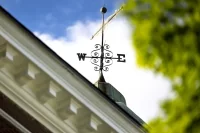
The rhetorical flourish that ends Martin Luther King Jr.’s “I Have a Dream” speech at the Lincoln Memorial in August 1963 is as rousing as it is unforgettable: “Free at last, free at last, thank God I’m free at last.”
While iconic, it’s not his first public use of that line. Six years earlier, King used it to describe to his church congregation in Montgomery, Ala., what it felt like to attend the March 1957 liberation ceremony for Ghana, which had been a British colony since 1821.
Witnessing throngs of people in the streets of Accra, he said that “I could hear that old Negro spiritual once more crying out, ‘Free at last, free at last, Great God Almighty, I’m free at last.’”
In 1957, King was inspired by a literal moment of decolonization and liberation — the lowering of the British flag and the raising of the Ghanian flag. Here, in America in 2022, the push for decolonization and liberation continues, albeit in a less literal fashion.
Hence the theme for Bates’ Martin Luther King Jr. Day observance : “What I Mean When I Say: Decolonization and Liberation.”
Today, decolonization and liberation zeroes in on undoing racist structures and ways of thinking and doing — the idea that the white way is the right way — that oppress, marginalize, and exploit Indiginous and Black communities and thwart both their and their allies’ efforts.
The MLK Day keynote event underscored that complexity, featuring not just one speaker but a keynote panel of five Maine-based thinkers, practitioners, and activists who shared personal narratives and insights that vividly captured the day’s theme.
In his opening remarks, Assistant Professor of Environmental Studies Tyler Harper, co-chair of the college’s Martin Luther King Jr. Day Planning Committee, spoke about the historical tension in social movements, between patience on the one hand and urgency for change on the other. As King wrote in his “Letter from a Birmingham Jail,” expressing this tension, “‘Wait’ has almost always meant ‘never.’”
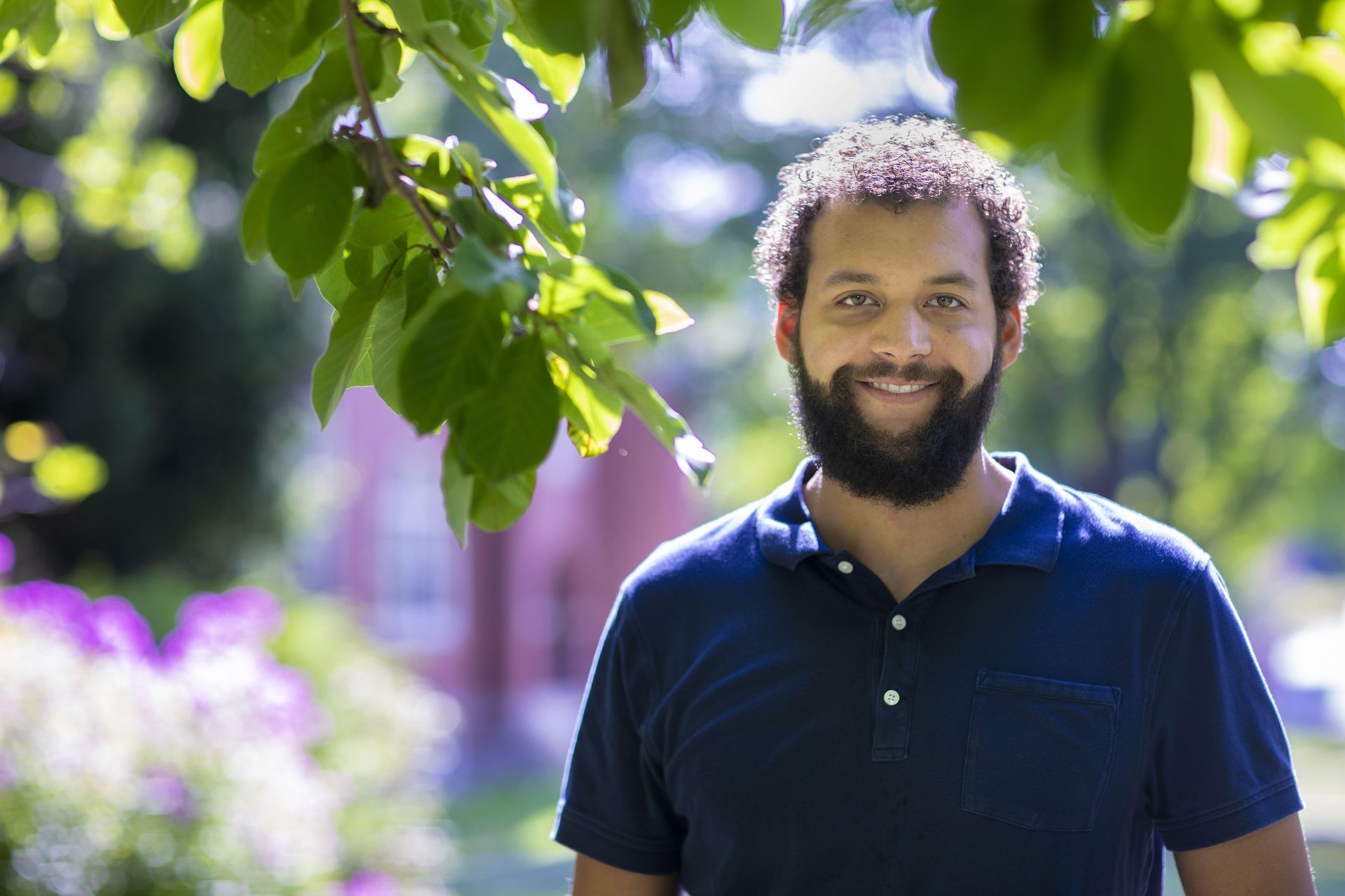
Quoting Ambrose Bierce, Harper said that patiently awaiting change in 2022 is merely “a minor form of despair, disguised as a virtue.” In that sense, he continued, “decolonization is a practice of saying ‘no’ to suffering, a practice of saying ‘no’ to despair, and of asserting that we are finished sitting quietly insisting on the possibility of change.”
Harper’s committee co-chair, Assistant Professor of Theater Cliff Odle, gave kudos to the two student members of the committee, Aaliyah Moore ’24 of Phoenix and Sam Jean-Francois ’23 of Medford, Mass., for the 2022 theme.
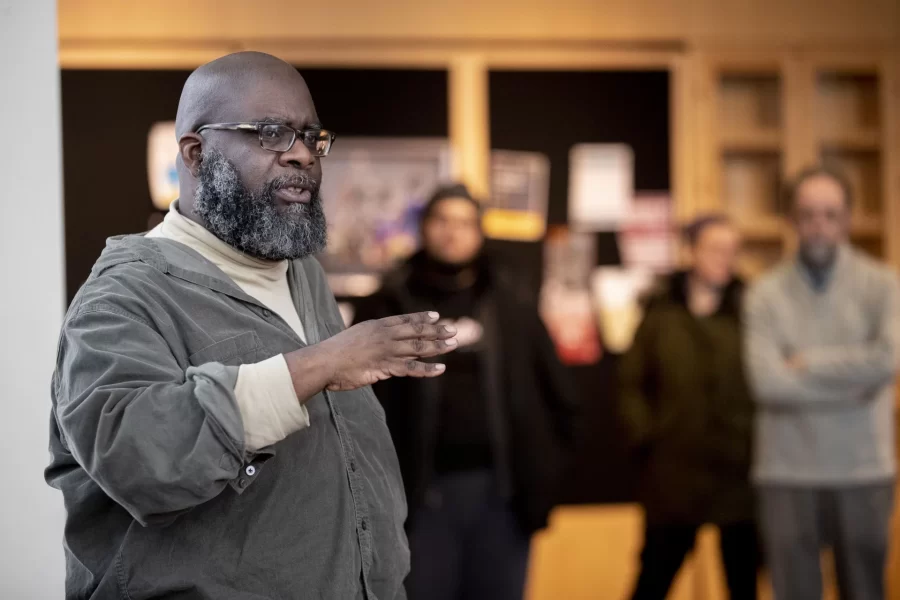
“They passionately put together an argument for decolonization and liberation,” Odle said, admitting that he initially was skeptical. “But thanks to their leadership and their example, I realized that there’s a lot more to decolonization than meets the eye.”
In her remarks, President Clayton Spencer said that visions of decolonization and liberation “encompass both ideas and practice and demand that we open ourselves to transformation and to the reimagination of the values by which we live, work, and organize structures of opportunity for human fulfillment.”
In a tour de force opening remarks, panel moderator and Visiting Assistant Professor of Africana Cassandra Shepard asked a series of searing questions capturing the persistent and insidious legacy of colonialism. Here are just three:
“What does the U.S. owe to displaced indigenous and Black folk who for generations have been enslaved, removed violently and intentionally marginalized away from resources, harmed and forced to lead lives with less dignity, and killed with state-sanctioned violence, and killed extra-legally by citizens, vigilantes, and militias?”
Second, “what does the state of Maine owe displaced Indigenous tribes and displaced Black people, given its land occupation and as Maine ship captains transported slaves from Africa to north America in the 1800s, even after it was made illegal?
And third, “What role should Bates play when the financial gift that Benjamin Bates donated came from his dealings with the cotton industry, meaning that it was fueled by slavery?
Below are edited selections — text and video clips — from each panelist’s remarks on Martin Luther King Jr. Day at Bates.
Connections and Affiliations
Born in Ghana, Pious Ali has called Maine home since 2002. He is a Portland city councilor who works for the Foundation for Portland Public Schools. In 2013, he became the first African-born Muslim American elected to public office in Maine when he joined the city’s Board of Education.
For me, colonization is not just about colonial rule or taking away people’s power. It is about taking away their culture, taking away their language, and taking away their faith. I take with me everywhere something said by the late Ghanaian president Jerry John Rawlings: “You may Christianize me, if you want. But do not Europeanize me.” This is not just for Christians. It applies to Muslims. It applies to every faith that has used their power to take away the traditions and the faith of Indigenenous people globally.
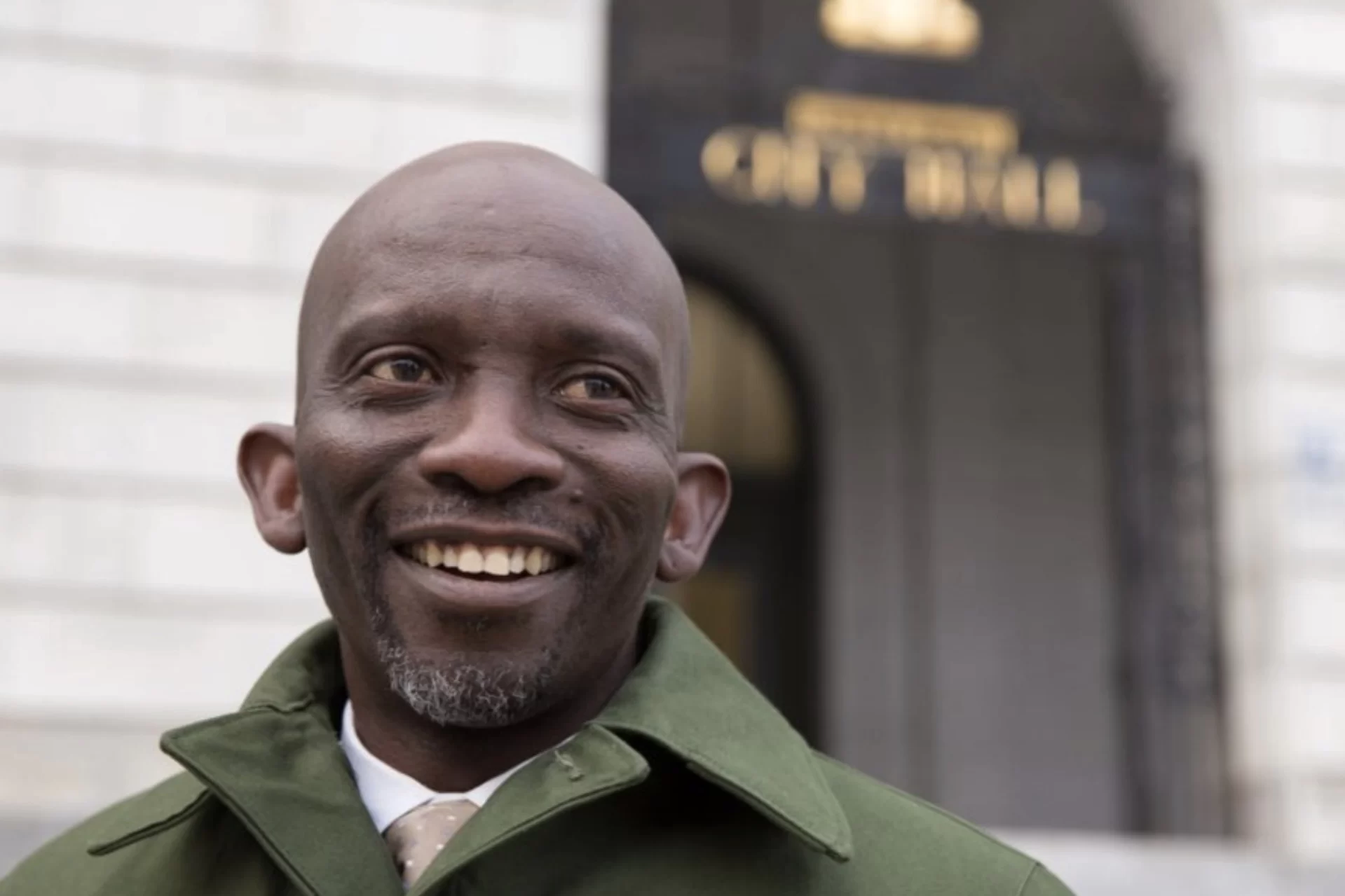
A priest had told Rawlings he could not give his children African names. Rawlings mentioned a traditional African name and the priest said that you cannot give your kids these names because they are not Catholic names. Rawlings said, “Catholic names are European names. I’m not European. I am African and I want to give my kids African names.” The priest refused to baptize the kids.
Our liberation is connected. You cannot have liberated African Americans or Blacks in the diaspora without having liberated Africans.
So Rawlings gave his kids African names. He would go back into history and pick an African hero or shero, and give his kids those names. Many of us walk around with names that are not our names, that are names that have been given to us by our colonizers.
In my world, I am a Muslim. I am a black man. I am an immigrant. At the national level, I have joined a lot of affiliations where we have to work together because I believe that our liberation, if I can use that word, is connected. You cannot have liberated African Americans or Blacks in the diaspora without having liberated Africans.
Liberation and Identity
Hamza Abdi is originally from the African nation of Djibouti, which gained its independence from France in 1977. Abdi is the assistant director of volunteer programs and community partnerships for the Harward Center for Community Partnerships at Bates.
What does decolonization and liberation mean to me as an African expat, who has strong ties with the continent? It means rediscovering myself, reclaiming my identity, and liberating myself from the colonial mindset and the trap of a very dangerous colonial education system.
I had rejected and renounced my own ethnic identity, Somali. I lived with the colonial mentality, which is the perception of ethnic and cultural inferiority and a form of internalized racial oppression. And this is the reality in many communities and in many countries.
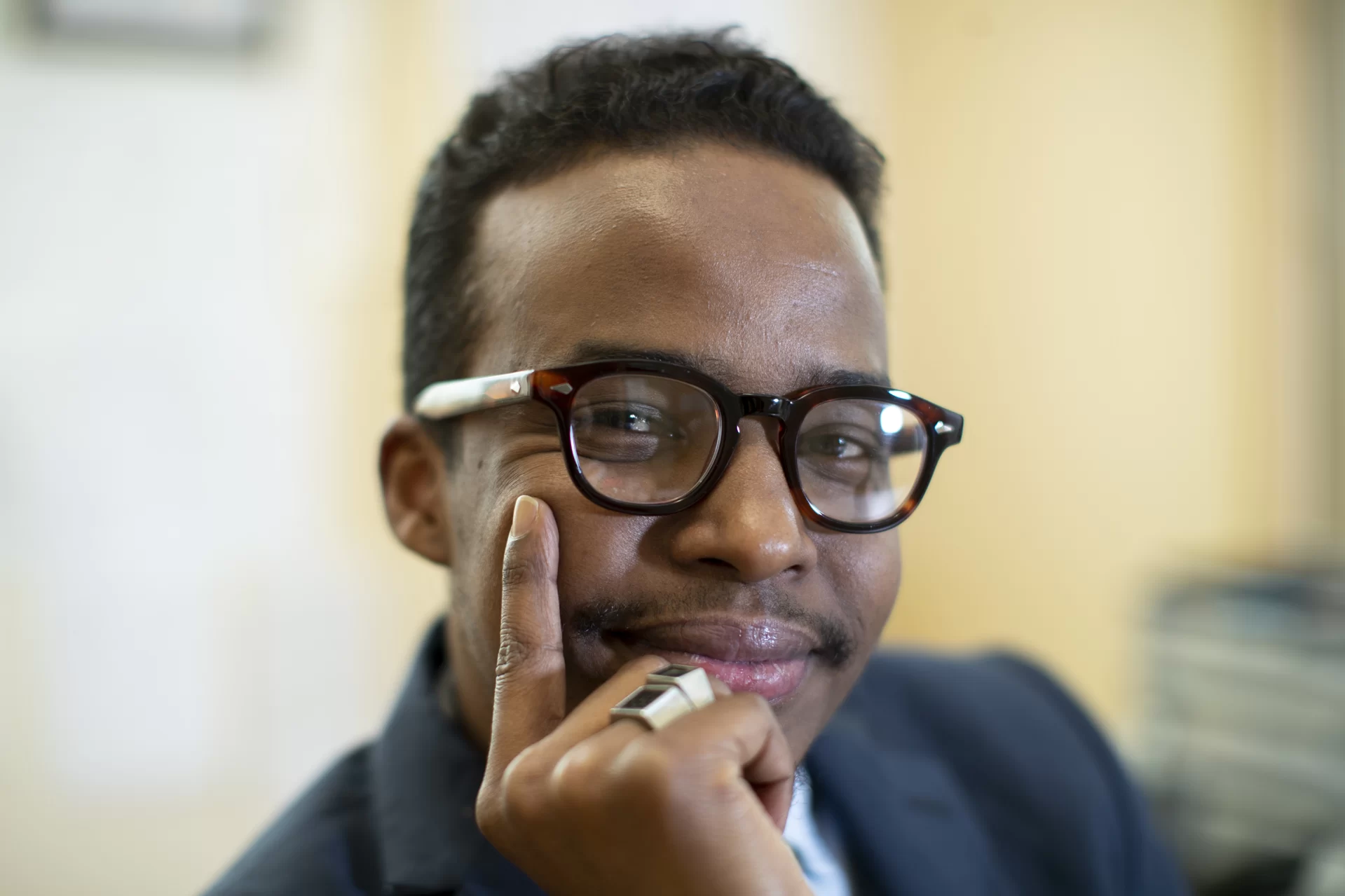
In a lot of African francophone countries, unless you speak French and adopt the Western culture, you won’t be seen and categorized by the society as a real citizen. Among other identity crises is the glamorization of light skin as the hallmark of beauty. This is more prevalent among some African women, who do whatever it takes to look light skinned, in a mutation of European color pigmentation.
This is why the skin bleaching epidemic infected Africa, as women in many African countries were buying bleaching creams and soaps to lighten their skin with the idea that lighter skin is more appealing in Africa.
I began to wake up to the reality that seeing and calling out colonization wasn’t enough. I needed to engage colonization with an intention to dismantle it.
The power of colonization is tremendous, and oftentimes people who fight against the oppressive systems feel defeated, yet continue their path to decolonization. Real work is needed to bridge this divide. I began to wake up to the reality that seeing and calling out colonization wasn’t enough. I needed to engage colonization with an intention to dismantle it. I began to search for people who were embodying resistance, who were serious about bringing change in the community, and who challenged oppressive systems.
Freedom and Authenticity
Jordia Benjamin is deputy director at Indigo Arts Alliance, a Portland organization grounded in, and enacting the idea of, “arts plus activism.”
We are creating alternative pathways to cultivating Black arts and Black culture. We are defining and redefining and centering black history, culture, and brilliance. Freedom is a common word that is used a lot, especially in days and moments like this.
Decolonization and liberation is an uphill battle. But if the action is founded and grounded in love — the progress toward that is the reward.
But for us, we are defining” freedom” as the means to fully own and embody a spirit of independence to express our whole selves, honoring the ethics, values, aesthetics, tradition, and concerns of Black people. We are showing up authentically Black every day.
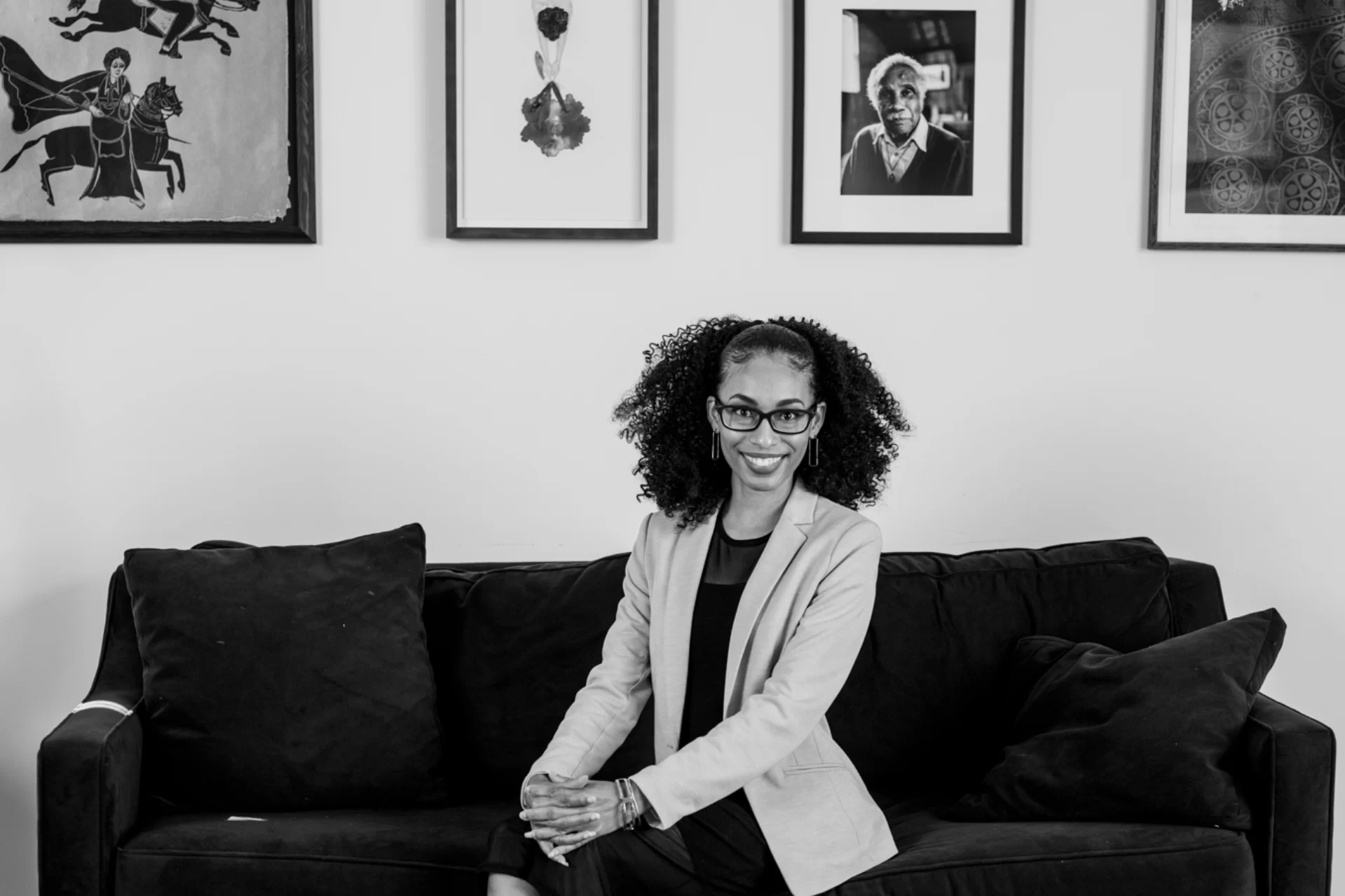
We have embodied equity that has been nurtured within an innovative and truly free environment — that is when we can enrich the lives of all members of the community.
Decolonization and liberation is an uphill battle. But if the action is founded and grounded in love, the love to exist in a multiracial democracy — the progress toward that is the reward. We are all here on borrowed time. So if you want to continue to contribute to maintaining a capitalistic power, or contribute to strengthening your community, thus people’s empowerment, that is ultimately your decision. But I truly encourage you all to choose the latter because that path will only benefit us all. And the other path will eventually exclude you at the end of the road.
So if you are here today, you are saying that you are choosing liberation. Your actions should consistently be decolonizing structures that are not equitable or inclusive. That means calling out family members, teachers, neighbors, public servants, etc. We should all be holding the other accountable. That is an action of love. It is truthful, and it will take consistent work.
Destruction and Hope
Maria Girouard of Penobscot Nation is an historian and executive director of Wabanaki REACH, which advances the self-determination of Wabanaki people through education, truth-telling, restorative justice, and restorative practices.
In 1963, Martin Luther King Jr. wrote that “our nation was born in genocide when it embraced the doctrine that the original American, the Indian, was an inferior race,” adding that “the scar of racial hatred…disfigured colonial society.”
Not only were we responsible for so much destruction, King added, but “we elevated that tragic experience into a noble crusade” — Manifest Destiny, that somehow God led the European invaders to this continent to carry out their business,
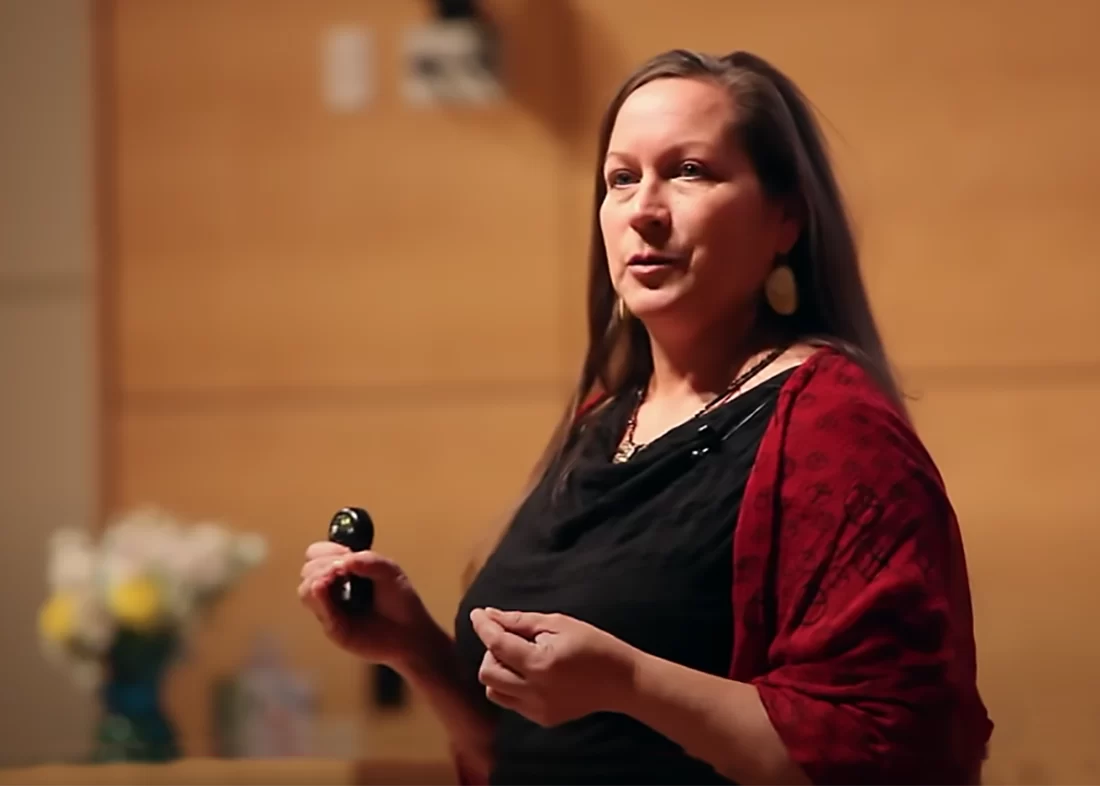
When I think of my schooling in colonial history, it all sounds so quaint and wholesome: building an existence out of the land. It’s devoid of the destruction that colonialism infected this land with, and the trauma that still exists today — what it did to the land and setting borders and boundaries and staking claims, and cutting forests and damming rivers and setting fences, and almost immediately this territory, which was the homelands of the Wabanaki people, became a resource extraction state.
I used to always think, “How did these things happen to my ancestors, the Penobscot people?” I realize that it happens right underneath our noses.
It became a place where wood could be cut for profit, where fish could be harvested for profit, where beaver skins were harvested for profits. It broke the relationship between the people and the lands. It was a very violent event that I dare say is still happening today.
When I was studying for my bachelor’s and master’s degrees, I used to always think, “How did these things happen to my ancestors, the Penobscot people? How did it happen that we reserved these lands in perpetuity, and now we only have a fraction of it today?” Then in 2012, the state of Maine gave an interpretation that the Penobscot Reservation, which consists of about 200 islands in the Penobscot River, includes no portion of the river waters. When this happened, I realized that I didn’t have to wonder anymore. It happens right underneath our noses.
But I always like to hold up hope. Just the other day I came across the idea that if all of us devoted just 1 percent to doing better each day, the world would be 7 million percent better. So I peel the conversation back to us as human beings and our personal power, and the notion from Dr. Martin Luther king Jr., who said, “Never lose infinite hope.”
Impatience and Challenge
Julia Sleeper-Whiting ’08 is the co-founder and executive director of Lewiston’s Tree Street Youth Center, which supports youth leadership, learning, exploration, and growth. Her family emigrated from Lebanon to America through Ellis Island in the early 1900s.
Every day here at the center, we’re working with young people who truly believe in the concepts of liberation, who truly believe in making worlds different and not being held to these boxes.
However, every day we’re also seeing the practices of colonization, even at times within our own entities, restricting them, holding them back, and teaching them that there is a right way or a certain expression or a way of functioning — restrictions and rules and boxes that stand in stark contrast to the mission and vision of fearing less loving, more and dreaming bigger.
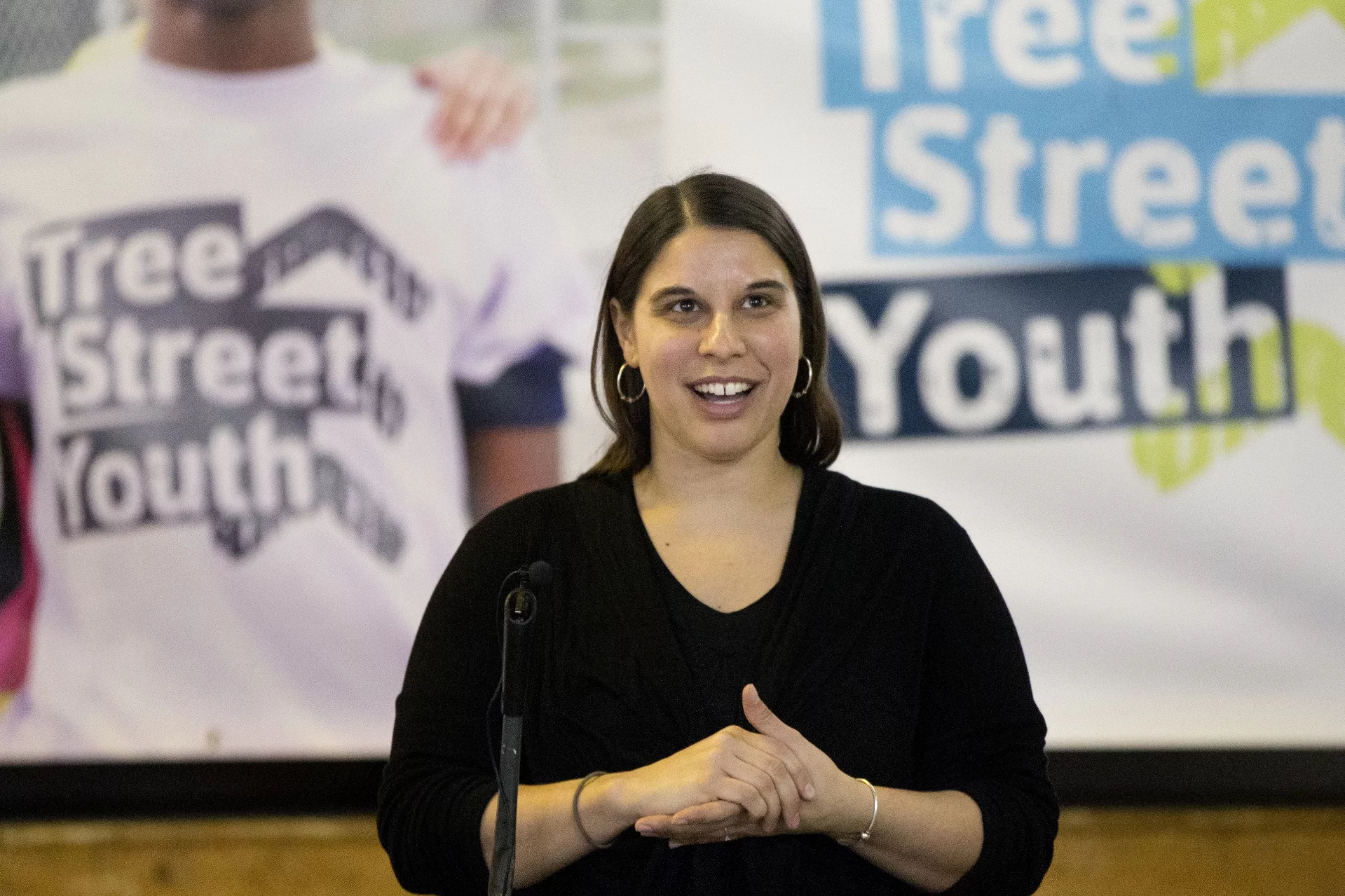
I am from the second generation of a family who came to the U.S seeking a vision for their lives, but then allowing things to happen, including our family name being changed from “Saliba” to “Sleeper.”
Our family had lands in the region of Katahdin in Maine, the lands of the Wabanaki people. I witnessed the extraction — witnessed clear cuts, witnessed the pain to the land itself and also within my own spirit — and did not feel right about what I was seeing but also benefited from the exact same extraction practices.
The work of building an organization to cultivate leaders who fear less, love more and dream big is in constant battle with ideas about the way things should be done.
I grew up being taught that there are perfect and right ways and correct ways to do things. For me, liberation came when I started becoming impatient at being challenged or questioned about the pace at which I want to evolve things.
The work of building an organization to cultivate leaders who fear less, love more, and dream big, and to build communities united across lines of difference, is in constant battle with ideas about the way things should be and the way you have to build an organization or how your fundraising should go, or where you should be seeking support.
In order to truly become liberated, we must create space for healing and rest. We need space for releasing those things that keep us, as the kids, say “tight.” We carry that tightness: tight-lipped or feeling tight in your stomach — anxious to engage because you fear that people will not receive what you have to say.
My takeaway message is to use your own lived experience to ground yourself in humility, to ground yourself in awareness of, yes, there are things that have created advantages for you. And in the midst of so much chaos in our world, there are still people so passionate and so willing to lean in, while also honoring the challenge and the exhaustion that comes along with it.

